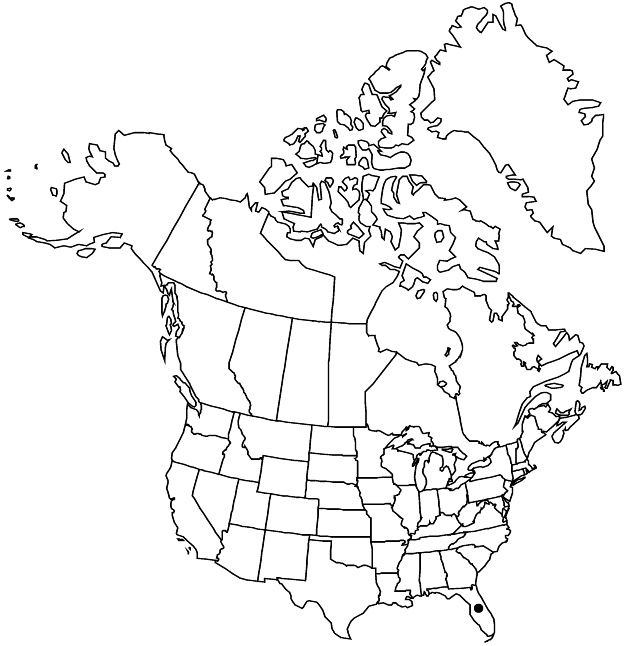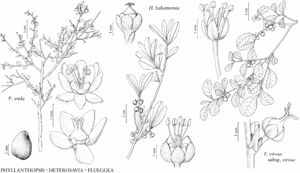Difference between revisions of "Heterosavia bahamensis"
Brittonia 60: 153. 2008.
imported>Volume Importer |
imported>Volume Importer |
||
| Line 57: | Line 57: | ||
|publication year=2008 | |publication year=2008 | ||
|special status=Illustrated | |special status=Illustrated | ||
| − | |source xml=https:// | + | |source xml=https://bitbucket.org/aafc-mbb/fna-data-curation/src/2e0870ddd59836b60bcf96646a41e87ea5a5943a/coarse_grained_fna_xml/V12/V12_604.xml |
|genus=Heterosavia | |genus=Heterosavia | ||
|species=Heterosavia bahamensis | |species=Heterosavia bahamensis | ||
Latest revision as of 20:16, 5 November 2020
Shrubs or trees, (5–)20–40(–80) dm. Leaves: petiole 2–5(–8) mm; blade usually obovate or elliptic, sometimes oblong, (1–)2–4.5(–8) × (0.7–)1.2–2.5(–4.5) cm, base acute, obtuse, or rounded, apex acute, obtuse, rounded, truncate, or retuse, surfaces usually glabrous, sometimes with scattered hairs. Inflorescences: staminate flowers (6–)10–25 per glome. Pedicels: pistillate 1–6 mm. Staminate flowers: sepals ovate or oblong, 1.5–2 mm, hairy abaxially, sometimes ciliate; petals spatulate to obdeltate, 1–1.5 mm, margins erose to lacerate, apex truncate; stamens 2–4 mm. Pistillate flowers: sepals orbiculate, ovate, or deltate, 1–2 mm, hairy abaxially, sometimes ciliate; petals spatulate to orbiculate or oblong, 1–2 mm, entire to slightly erose, sometimes ciliate. Capsules 6–7(–9) mm diam. Seeds brown to reddish, 3–5.5 mm.
Phenology: Flowering and fruiting year-round.
Habitat: Hammocks, limestone.
Elevation: 0–10 m.
Distribution

Fla., West Indies (Greater Antilles).
Discussion
Heterosavia bahamensis is restricted in the flora area to the lower Florida Keys, where it may be locally abundant, forming monospecific thickets.
Selected References
None.
